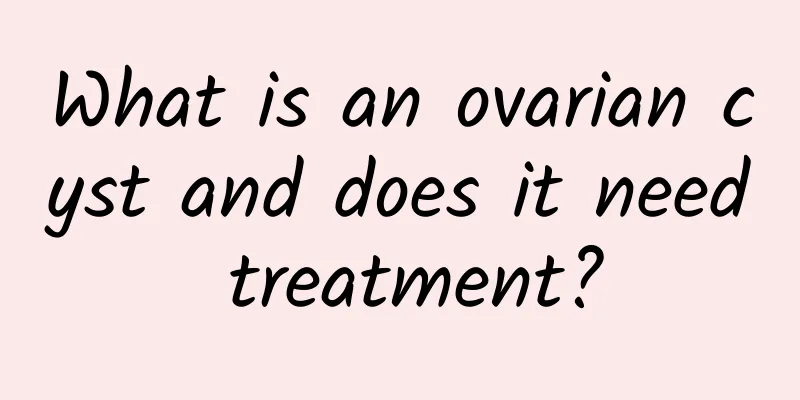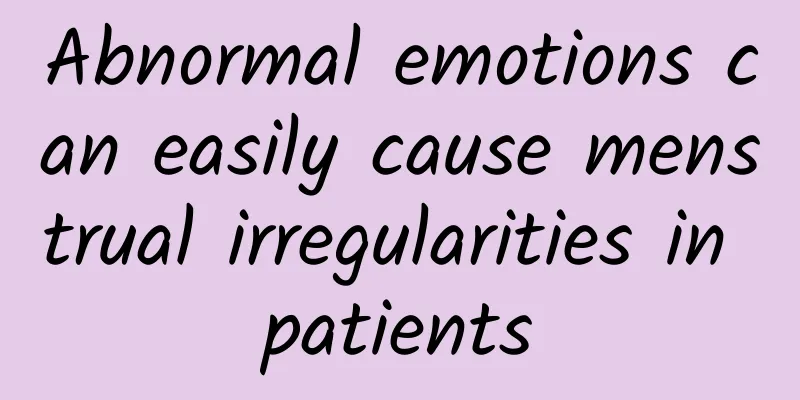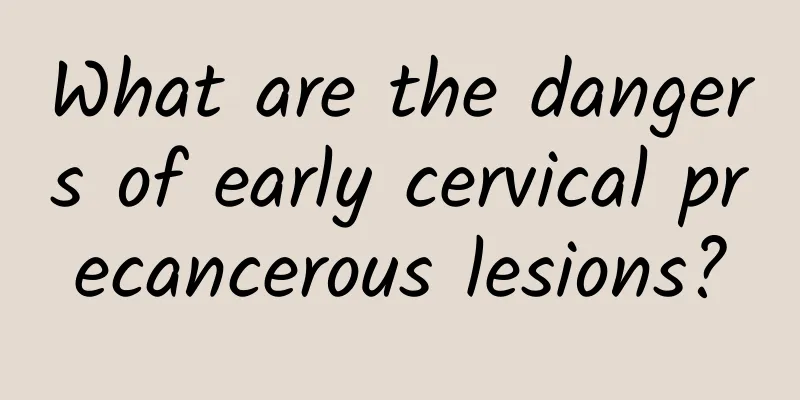What is an ovarian cyst and does it need treatment?

|
Ovarian cysts are fluid-filled sacs that form on a woman's ovaries. They are usually caused by a variety of factors. Whether treatment is needed depends on the size of the cyst and the symptoms it causes. 1. Cause analysis The formation of ovarian cysts may be related to a variety of factors. Diet and environment are an important aspect. In modern society, the increase in environmental pollution and ionizing radiation may have an impact on the reproductive system. Foods containing hormones, such as meat raised with clenbuterol and vegetables and fruits grown with plant growth hormones, may pose a threat to women's health and induce ovarian cysts. Endocrine disorders are also a common cause. When the endocrine system functions abnormally, excessive estrogen secretion may lead to the formation of ovarian cysts. Infection factors should not be ignored. Repeated pelvic infections may lead to thickening of the fallopian tube lumen and exudation of inflammatory mediators, which in turn affects ovarian function and induces cysts. 2. Treatment recommendations There are usually two methods for the treatment of ovarian cysts: conservative and surgical. Conservative treatment is suitable for physiological ovarian cysts, which are usually asymptomatic and can be observed to determine whether intervention is needed. If the cyst disappears on its own, no treatment is required; if it ruptures and the bleeding is small and the condition is stable, anti-inflammatory drugs such as cefaclor or amoxicillin can be used for treatment. Surgical treatment is suitable for larger cysts or those with obvious symptoms. When the cyst is larger than 5 cm in diameter and the patient has no fertility requirements, surgery such as ovarian cystectomy or oophorectomy can be considered. 3. Adjustment of lifestyle To prevent the formation of ovarian cysts, adjusting your lifestyle is the key. Maintain a healthy diet, try to avoid foods containing hormones, and choose organic and natural ingredients. Regular physical examinations are also important. Through regular gynecological examinations, potential health problems can be detected and treated early. Maintaining a good attitude and moderate exercise can help maintain endocrine balance, thereby reducing the risk of cyst formation. 4. Pay attention to mental health Facing the diagnosis of ovarian cysts, it is also important to adjust your mental state. Many women feel anxious and uneasy when they learn that they have cysts. Maintaining a positive attitude, seeking advice from professional doctors, and communicating with family and friends can help relieve psychological stress. Although common, ovarian cysts do not always require aggressive treatment. Understanding their causes, symptoms, and treatment options, as well as prevention through a healthy lifestyle, can effectively manage and reduce their impact on your health. |
<<: Is it okay if I got my period right after having sex?
>>: Abdominal pain and excessive vaginal discharge after missing menstruation
Recommend
Features of double-chamber decompression painless abortion
There are many types of painless abortion, includ...
Treatment of infertility after abortion with oligomenorrhea
Two years ago, Ms. Zhu had an abortion at the age...
Are there any sequelae after the treatment of cervical warts?
Cervical warts are a very common disease. Althoug...
What are the dangers of hyperprolactinemia in the early stage?
What are the dangers of hyperprolactinemia? The s...
Why does vaginitis often recur after treatment?
Why does vaginitis often recur after treatment? F...
What are the treatments for vaginitis?
What are the treatments for vaginitis? Vaginitis ...
Can eating small meals frequently help you lose weight? Eat right to control hunger and preserve muscle
As the weather gets warmer, people are worried ab...
The treatment focus of acute and chronic adnexitis is different
Adnexitis is a common gynecological disease, whic...
How much does an artificial abortion cost?
When the warmth reaches its climax, the little li...
Experts explain the complications of two major ovarian cysts
The complications of ovarian cysts are relatively...
Several effective nursing measures for vulvar leukoplakia
Vulvar leukoplakia is a major disease that many w...
How to prevent and treat cervicitis?
How should we prevent and treat cervicitis? Exper...
What are the hazards of pregnancy with uterine fibroids? What are the effects of pregnancy with uterine fibroids on pregnancy
Menstrual changes, if your normal menstrual cycle...
What is the cause of the left ovarian cyst and how to treat it
Ovarian tumors are common tumors of the female re...
What kind of folk method is best for treating female cervical erosion? Share the folk method of treating female cervical erosion
Which traditional remedy is best for treating cer...









